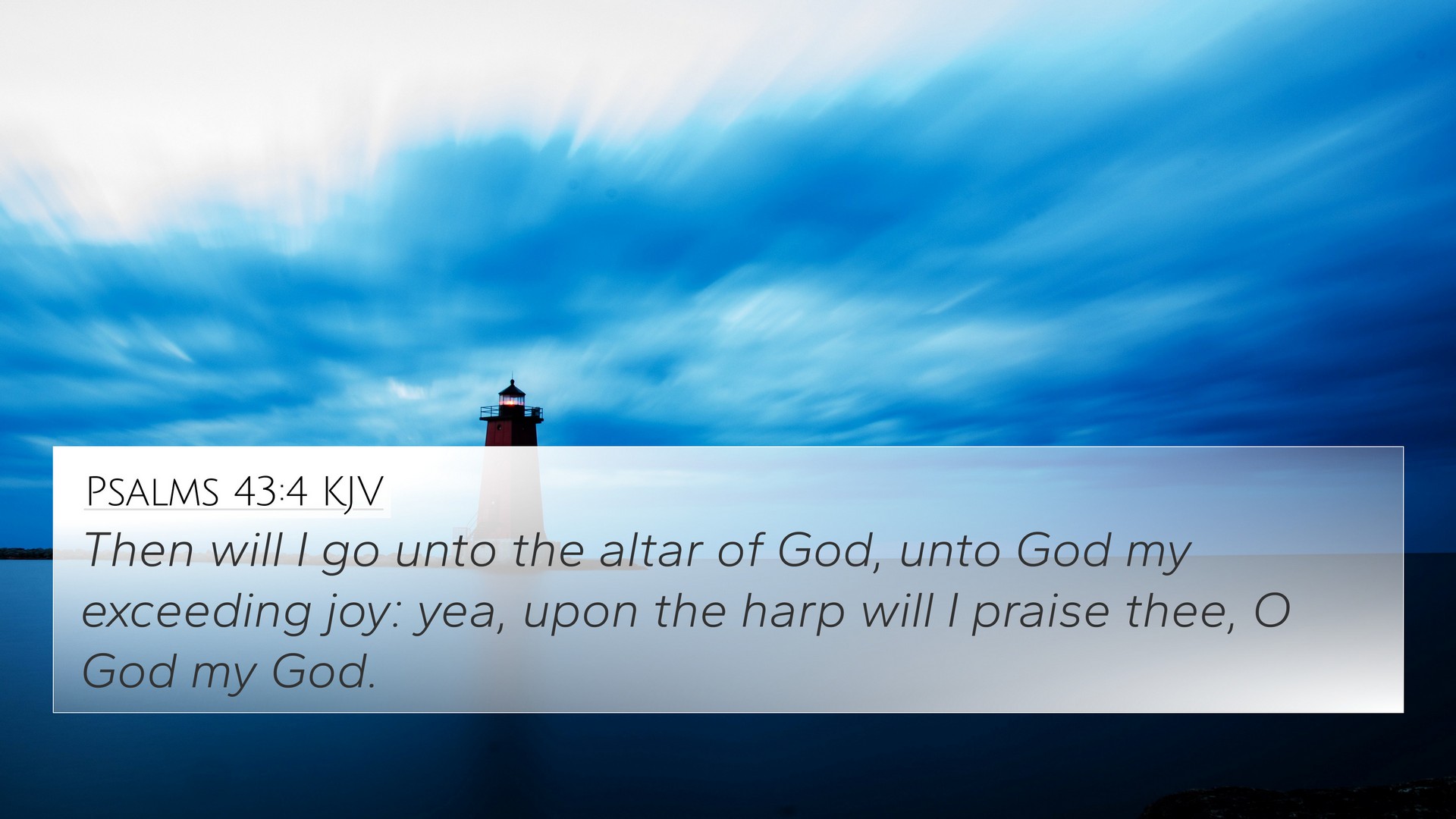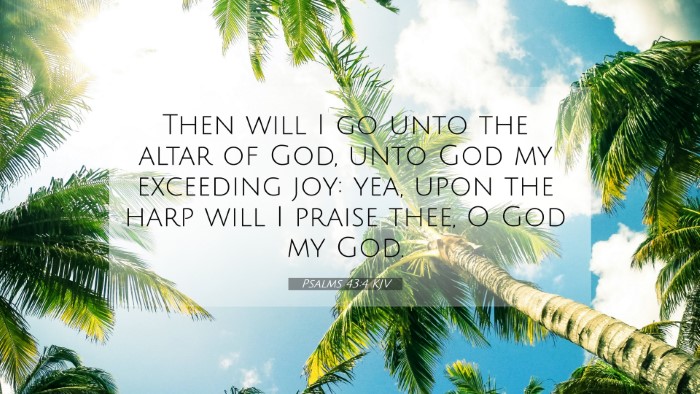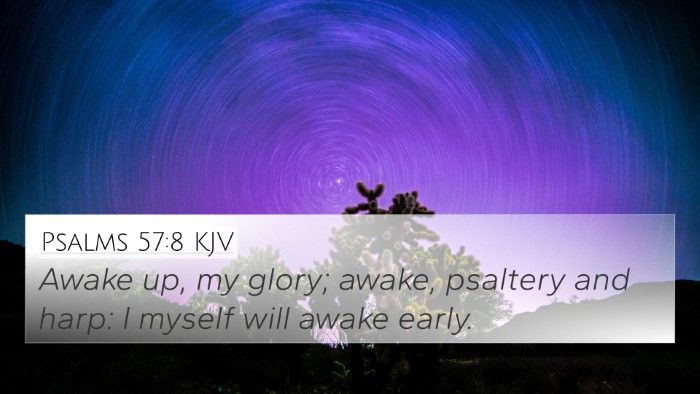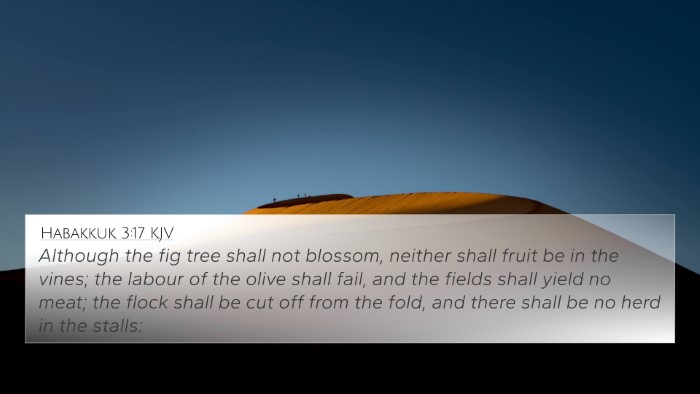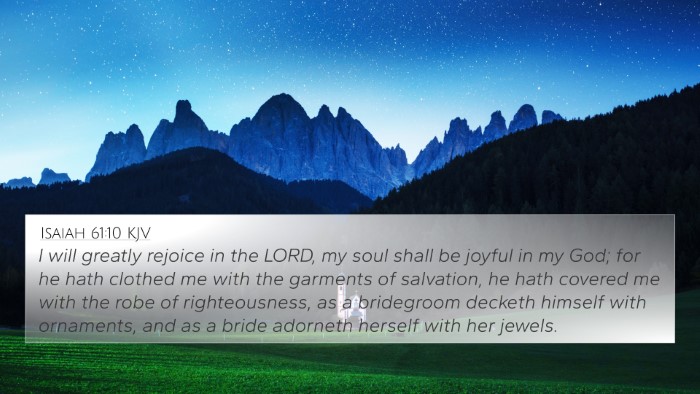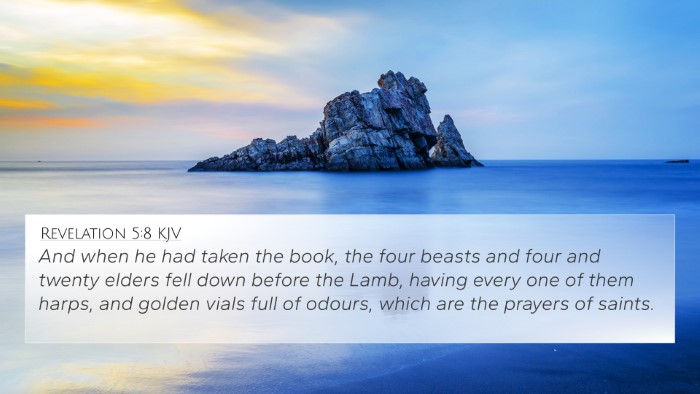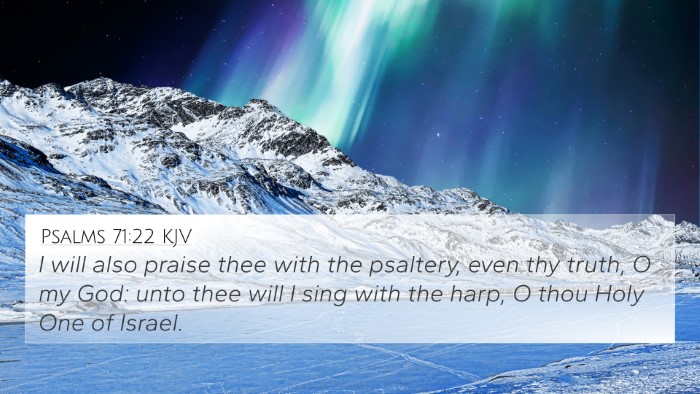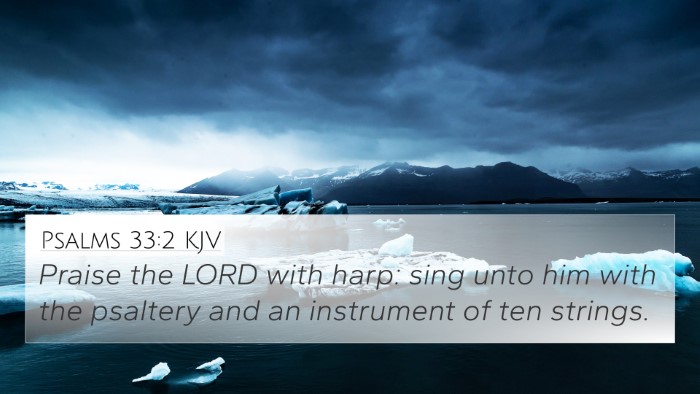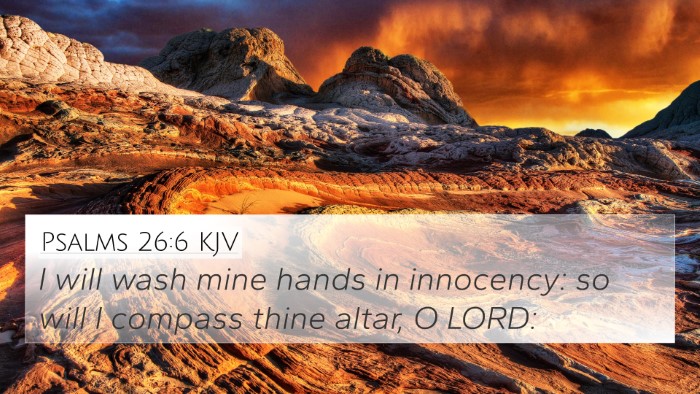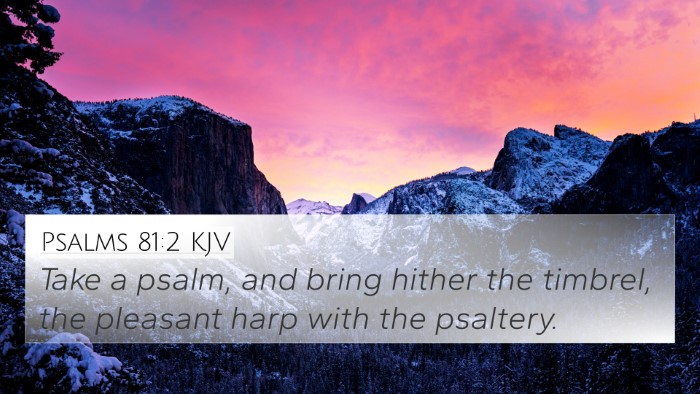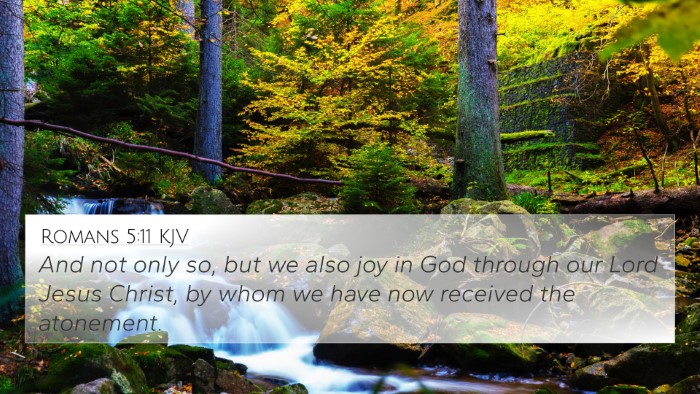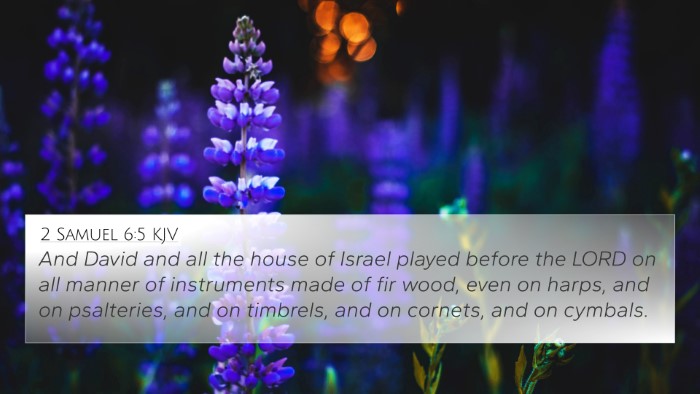Psalms 43:4 - Meaning and Interpretation
Psalms 43:4 reads: "Then will I go unto the altar of God, unto God my exceeding joy: yea, upon the harp will I praise thee, O God my God." This verse captures the psalmist's desire to approach God with joy and praise, demonstrating the profound relationship between worship and true happiness found in communion with the Divine.
This verse transitions from a lament over the psalmist's situation to a declaration of hope and joy in God. The psalmist expresses an intention to return to the altar, a place of worship, indicating that the act of worship and praise is essential to spiritual restoration and joy.
Commentary Insights
-
Matthew Henry: Henry emphasizes the importance of the altar as a place of sacrifice and communion with God. The psalmist's commitment to return to the altar signifies repentance, humility, and a yearning for divine connection, highlighting the transformative power of worship.
-
Albert Barnes: Barnes notes that the psalmist finds joy in God Himself, referring to God as "my exceeding joy." This personal relationship illustrates how true joy is found in a deep connection with God, rather than in external circumstances or material possessions.
-
Adam Clarke: Clarke points out the significance of musical praise, as the psalmist plans to use the harp. Music is a universal language that can deepen the emotional experience of worship, aligning the heart and mind in praise during times of distress.
Cross References
To better understand Psalms 43:4, several Bible verses relate to its themes of joy in worship and the connections between believers and God:
- Psalms 27:6: "And now shall mine head be lifted up above mine enemies round about me: therefore will I offer in his tabernacle sacrifices of joy; I will sing, yea, I will sing praises unto the Lord." - This verse echoes the theme of rejoicing in God's presence.
- Psalms 100:2: "Serve the Lord with gladness: come before his presence with singing." - A call to joyful worship that complements the sentiment of approaching God with praise.
- Philippians 4:4: "Rejoice in the Lord always: and again I say, Rejoice." - An exhortation from the New Testament that reinforces the theme of joy in the Lord.
- Romans 12:1: "I beseech you therefore, brethren, by the mercies of God, that ye present your bodies a living sacrifice, holy, acceptable unto God, which is your reasonable service." - This reflects the idea of coming to God with a heart prepared for worship.
- Psalms 30:5: "For his anger endureth but a moment; in his favor is life: weeping may endure for a night, but joy cometh in the morning." - This emphasizes the transient nature of sorrow compared to the lasting joy found in God's presence.
- John 15:11: "These things have I spoken unto you, that my joy might remain in you, and that your joy might be full." - Jesus speaks of joy in a relationship with Him, similar to the joy expressed in Psalms.
- Hebrews 13:15: "By him therefore let us offer the sacrifice of praise to God continually, that is, the fruit of our lips giving thanks to his name." - An understanding that praise is a central aspect of worship and fellowship with God.
Thematic Connections
Psalms 43:4 fundamentally illustrates the themes of:
- Worship and Praise: The centrality of worship in the believer's life as a response to God's nature and faithfulness.
- Joy in God: Finding true joy not in worldly things, but in a relationship with God.
- Restoration: The act of returning to God after turmoil signifies hope and the promise of spiritual revival.
Conclusion
In conclusion, Psalms 43:4 serves as a poignant reminder of the core values of the Christian faith — the importance of worship, the joy found in God, and the healing that comes with reconciliation to the Lord. By engaging in comparative Bible verse analysis, one can deepen their understanding of how this verse connects with others in both the Old and New Testaments, revealing layers of meaning and insight into the nature of God and the believer's journey towards Him.
Whether you are using a Bible cross-reference guide or exploring Bible concordance tools, these connections provide invaluable resources for those seeking a comprehensive understanding of scripture.
As you study, remember that engaging in scriptural cross-referencing can enhance your understanding, enabling you to recognize how various passages interact and illuminate each other, creating an enriching tapestry of faith and worship.
